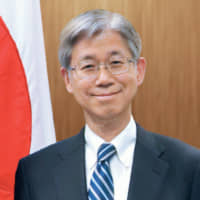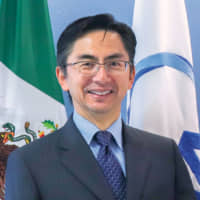As Japan and Mexico celebrate the 15th anniversary of their economic partnership agreement (EPA), the two countries look forward to further strengthening their relationship and creating more opportunities for growth in their economies.
According to Yasushi Takase, ambassador of Japan to Mexico, “The EPA between Mexico and Japan, which came into effect in 2005, has caused tremendous growth in trade between the two nations.”
Due to Mexico’s strategic location and its strong labor force, businesses were able to expand in the nation. “Mexico holds a key locational advantage with a border spanning 3,150 kilometers with the USA, and an abundant young labor force for manufacturing industries, making the country a highly competitive production base to develop North American markets,” said Kimihiko Inaba, director general of the Japan External Trade Organization.
“The number of Japanese companies in Mexico increased from around 400 in 2009 to more than 1,200 in 2019 and the volume of trade has doubled over the same period. This is clear evidence of the ever-growing opportunities between the two nations,” Takase added.
Meanwhile, Mexico’s automotive industry has greatly benefited from the country’s developing economy and is expected to grow further in the future. “The automotive sector is thriving in the country, with around 900,000 jobs being created, and one-third of them are estimated to be from Japanese firms operating in Mexico,” Inaba shared.
Japan International Cooperation Agency’s (JICA) Director General, Hitoshi Matsumoto, also added that it is focusing its efforts on “furthering technical assistance with specific focus on automotive and related industries” by creating programs to share its knowledge on the automotive market.
“Our current strategic direction in Mexico has two prongs: promoting and increasing vocational high school education, specifically in enhancing the skills required for the automotive and supporting industries; and elevating the level of the domestic skilled labor force through further education and opportunities,” he said.
Aside from the country’s automotive industry, Takase also predicts many other industries to follow in its success. “The next opportunities are in the fields of aerospace, medical and pharmaceutical technology, renewable energy, tourism and agriculture. Mexico is constantly opening new free trade areas and this beneficial position can be utilized through these thriving sectors to achieve success.”
Recently, the Comprehensive and Progressive Agreement for Trans-Pacific Partnership, which came into effect for Japan and Mexico in December 2018, opened more Asian markets for Mexican exporters. “We promote investment of Mexican firms in Japan, and facilitate them to establish strategic alliances with the Japanese,” Inaba said.
Moving forward, Takase hopes to continuously strengthen the partnership it has fostered with Mexico throughout the years. “We look forward to expanding our relationship in the years to come and continue building on the foundation of trust we have created,” Takase concluded.
www.mx.emb-japan.go.jp
www.jica.go.jp/mexico/english
www.jetro.go.jp/mexico/






